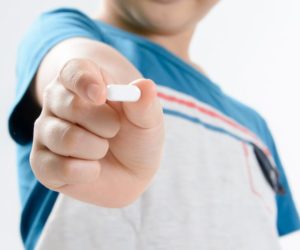Long Term Effects of Stimulants in Children

When your child is diagnosed with attention deficit and hyperactivity disorder, or ADHD, you’re faced with the decision of whether or not to give your child Ritalin or Concerta, the most commonly used medications to treat this disorder. You may wonder, Is Ritalin physically addictive? Is Ritalin safe for my child? What are the long term effects of stimulants in children? Read on for some reassuring answers to these questions.
The Case for Medication for ADHD
Stimulant medications like Ritalin are effective for reducing the symptoms of ADHD, which include inattention, the inability to start or finish things, disorganization, and forgetfulness. Stimulants work by slowly and steadily increasing dopamine levels in the brain to improve attention. A large body of research shows that stimulant medications used to treat ADHD are very effective, and the effect is even more powerful for kids who engage in behavioral therapy along with medication.
Because people with ADHD are a higher risk of developing a substance use disorder later on, and untreated ADHD is associated with poor academic performance, most experts recommend treating ADHD with medication.
Is Ritalin Physically Addictive?
Any psychoactive substance can cause dependence. Dependence occurs when the brain changes the way it functions in order to compensate for the presence of a drug. These brain changes lead to tolerance, which means that larger doses are needed to achieve the desired effects. At some point, brain function may shift so that it begins to operate more comfortably when the drug is present than when it’s not. As a result of dependence, when you stop using the drug, withdrawal symptoms set in.
While Ritalin is physically addictive when it’s abused in large doses, the doses used to treat ADHD in children are very unlikely to lead to physical dependence, even over a long period of time. Most physicians prescribe Ritalin on an as-needed basis, meaning that on weekends and during the summer, when your child isn’t required to focus for long periods of time, you can take a break from the medication. Ritalin is short-acting, which means it’s generally out of your child’s system by the following day.
Over time, the dosage may need to increase, and at some point down the road the medication may become ineffective altogether. But medical experts stress that using medication as long as it works to combat symptoms of ADHD is important for preventing the negative effects of the disorder.
What most parents want to know is the bottom-line answer to the question, is Ritalin safe for my child? The answer is, yes, Ritalin is safe for your child as long as it’s taken as directed. Doctors stress that when taken as prescribed, Ritalin is non-addictive, and it can help your child succeed in school, reduce the risk of substance abuse later on, and improve your child’s social functioning.
The Long Term Effects of Stimulants in Children
Studying the exact long term effects of stimulants in children is difficult due to the challenges of treating patients in a scientifically systematic way over a long period of time. Still, the long term effects of stimulants in children is the subject of a number of studies. A two-year controlled study of over 100 children in the late 1970s, followed by 33 years of follow-up, found that those who took medication for ADHD suffered no negative medical or mental health effects or problems with other areas of functioning when compared to those who didn’t take medication.
Additionally, no significant long term effects of stimulants have come to light over 40 years’ worth of post-marketing surveys that drug companies send to physicians. These surveys are the process by which medications are monitored after they’re initially approved by the FDA, and they help drug companies understand the potential side effects and other problems with their drugs.
The Bottom Line on Medications for ADHD
If your child has ADHD, using medication to reduce the symptoms can lead to better academic performance, and it can reduce the risk of substance abuse down the road. For the best results, talk to your child’s mental health provider about behavioral therapy as part of an effective ADHD treatment plan.
If you or a loved one needs help with abuse and/or treatment, please call the WhiteSands Treatment at (877) 855-3470. Our addiction specialists can assess your recovery needs and help you get the addiction treatment that provides the best chance for your long-term recovery.
